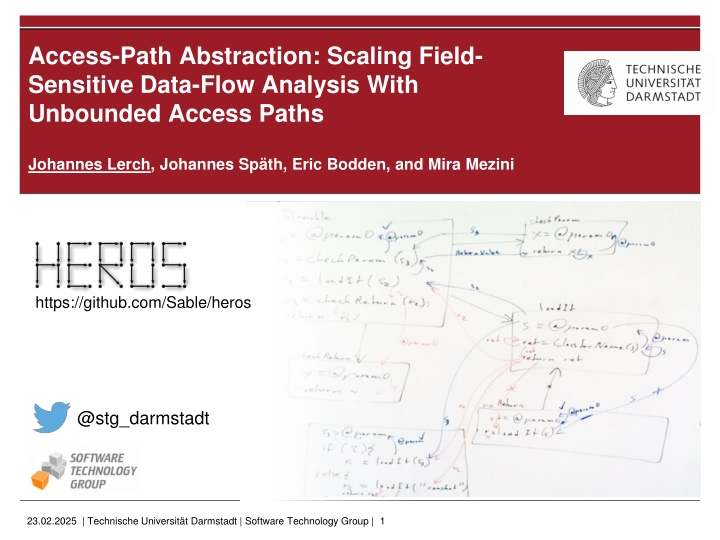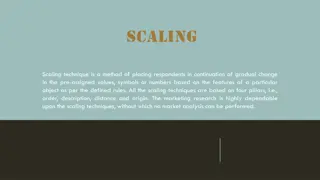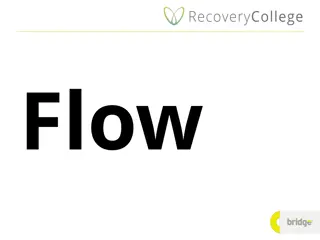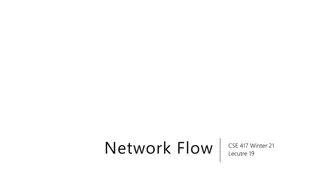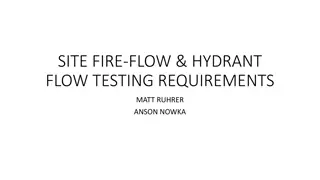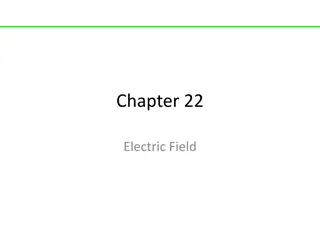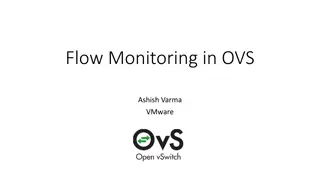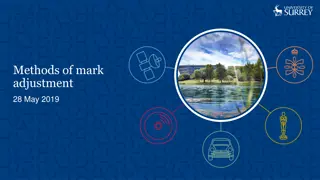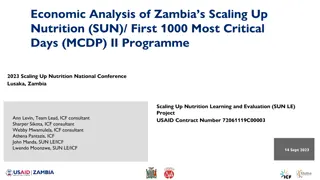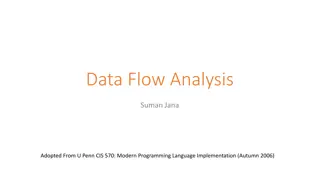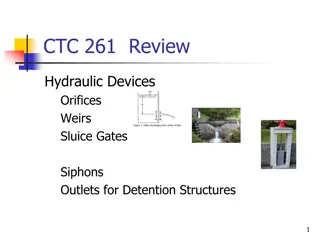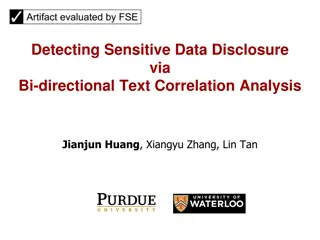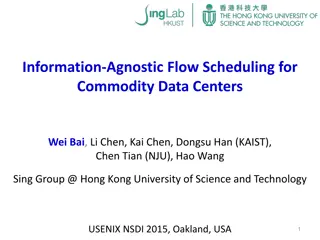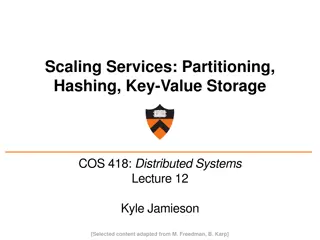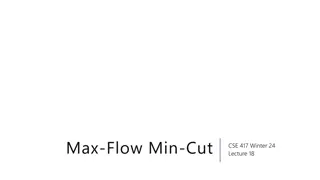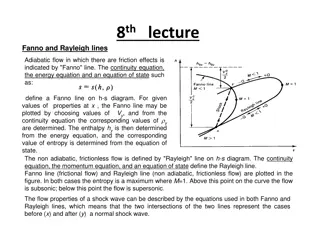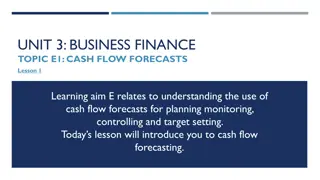Scaling Field-Sensitive Data-Flow Analysis
This research discusses techniques for scaling field-sensitive data-flow analysis, focusing on unbounded access paths, problematic cases identification, and scalability issues. The study delves into field-based tracking, loop iterations, K-limiting strategies, over-approximation methods, state explosion consequences, and interface interactions in software analysis.
Download Presentation

Please find below an Image/Link to download the presentation.
The content on the website is provided AS IS for your information and personal use only. It may not be sold, licensed, or shared on other websites without obtaining consent from the author.If you encounter any issues during the download, it is possible that the publisher has removed the file from their server.
You are allowed to download the files provided on this website for personal or commercial use, subject to the condition that they are used lawfully. All files are the property of their respective owners.
The content on the website is provided AS IS for your information and personal use only. It may not be sold, licensed, or shared on other websites without obtaining consent from the author.
E N D
Presentation Transcript
Access-Path Abstraction: Scaling Field- Sensitive Data-Flow Analysis With Unbounded Access Paths Johannes Lerch, Johannes Sp th, Eric Bodden, and Mira Mezini https://github.com/Sable/heros @stg_darmstadt 23.02.2025 | Technische Universit t Darmstadt | Software Technology Group | 1
Scalable Field-Sensitive Taint Analysis Based on IFDS-Framework [Reps et al. 1995] Context Sensitive Flow Sensitive Field Sensitive Scalability Issues Contributions of this work: Identification of problematic cases Approach solving these: IFDS-APA 2
Tracking Fields A a1 = new A() A a2 = new A() Field Sensitive x Field Based x = source() x a1.f = x x, a1.f x, A.f y = a2.f x, a1.f x, y, A.f sink(y) 3
Loops x = source() x do { b = new A() x x.f, b.f b.f = x x, b.f x.f, b.f.f x = b x.f, b.f x.f.f, b.f.f } while( ) x.f, b.f, x.f.f, b.f.f, 4
K-limiting k-limiting [Jones et al. 1981]: a.f.f.....f.f a.f.f.....f.* k k x = source() x do { b = new A() x x.f, b.f b.f = x x, b.f x.f, b.f.f x = b x.f, b.f x.f.f, b.f.f } while( ) x.f, b.f, x.f.f, b.f.f, 5
K-limiting k-limiting [Jones et al. 1981]: a.f.f.....f.f a.f.f.....f.* k k x = source() x do { b = new A() x x.f, b.f x.f.*, b.f.* b.f = x x, b.f x.f, b.f.* x.f.*, b.f.* x = b x.f, b.f x.f.*, b.f.* x.f.*, b.f.* } while( ) x.f, b.f, x.f.*, b.f.*, k-limiting with k = 1 6
Over-Approximation foo() { a.f = source() b.a = a c = b.a.g bar(c) } a.f b.a.* c.* c.* bar(c) { sink(c) } k-limiting with k = 1 7
State Explosion a = source() while( ) { if( ) a.f = a else a.g = a } k a a, a.f, a.g a.f.f, a.f.g, a.g.f, a.g.g a.f.f.f, a.f.f.g, a.f.g.f, ni yields different Access Paths for n fields and k-limiting i=1 8
State Explosion <<interface>> Foo X bar(X) calls calls FooA FooB X bar(X) X bar(X) writes field a writes field b 9
Summaries foo() { a.f = source() b = id(a) sink(b) } a.f p.f id(A p) { return p } p.f p.g p.g bar() { a.g = source() b = id(a) sink(b) } a.g 10
Identified Problems Finite Domain Reusability of Summaries State Explosion 11
Abstract Summaries foo() { a.f = source() b = id(a) sink(b) } p.f id(A p) { return p } p p.g bar() { a.g = source() b = id(a) sink(b) } p.g 12
Field Read a.g a a a.f bar(a) { b = a.f return b } a.f b 13
Field Read Transitive Check 0 x foo(x) { ... bar(y) } x x.f x.g y y.f a a a a.f bar(a) { b = a.f return b } b 14
Field Write a.f a a a^f bar(a) { a.f = null return a } a.g a^f a^f short for a.*\{f} 15
Field Write Transitive Check 0 x foo(x) { ... bar(y) } x x^f x.f y y^f a a a a^f bar(a) { a.f = null return a } a^f a^f short for a.*\{f} 16
Identified Problems Finite Domain Reusability of Summaries State Explosion 17
Abstraction Points SP: foo(a) { a<SP> while( ) { L1: b = new A() a<L1> a<L1> b.x = a b.x<L1> a = b a.x<L1> } c<L1> c = a.x d<x:L1> d = c.x 18
Identified Problems Finite Domain Reusability of Summaries State Explosion 19
Evaluation SecuriBench Benchmark consisting of 7 web applications Including all their dependencies especially the Java Class Library Taint analysis for SQL injection, command injection, path traversal, unchecked redirection 20
Evaluation SecuriBench Including Dependencies K-limiting IFDS- APA Field Based Project k=3 k=2 k=1 k=0 blueblog 1.21 OoM 54.56 43.54 27.15 1.05 jboard 322.70 OoM OoM OoM 228.84 40.81 pebble 108.38 OoM OoM OoM 138.40 17.13 personalblog 202.08 OoM OoM OoM 236.65 24.92 roller 478.81 OoM OoM OoM 102.83 35.19 snipsnap 307.65 OoM OoM OoM 203.16 113.01 webgoat 57.75 OoM 253.56 98.14 30.86 6.70 Run Time in Seconds 21
Visited Interprocedural Control-Flow Graph Edges Application Libraries Method Call Edge 22
Evaluation SecuriBench Including Dependencies K-limiting IFDS- APA Field Based Project ICFG Edges k=3 k=2 k=1 k=0 blueblog 692 483 3% OoM 29% 29% 46% 8% jboard 2 353 761 14% OoM OoM OoM 61% 30% pebble 1 769 459 13% OoM OoM OoM 62% 27% personalblog 2 194 345 15% OoM OoM OoM 62% 28% roller 2 891 553 15% OoM OoM OoM 56% 27% snipsnap 2 683 739 14% OoM OoM OoM 63% 28% webgoat 734 345 16% OoM 44% 41% 52% 20% Visited Interprocedural Control-Flow Graph Edges 23
Summary Finite Domain Reusability of Summaries State Explosion Caller Dependent Paused Edges Scales as well as Field Based Abstraction Points Take away: More precise does not automatically mean more expensive 24
